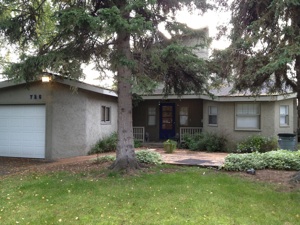A t t o r n e y s A t L a w
726 M Street•Anchorage, AK 99501
Phone: (907) 279-4529
Fax: (907) 279-9223
Email: alaskanlawyers@gmail.com


A t t o r n e y s A t L a w
726 M Street•Anchorage, AK 99501
Phone: (907) 279-4529
Fax: (907) 279-9223
Email: alaskanlawyers@gmail.com

Adoption in Alaska
By Steven Pradell
Children are adopted for many reasons. Stepparents often adopt children to form a close family bond with a new spouse. Parents who can not bear their own children adopt to start a family that they would otherwise be unable to enjoy.
A person who desires to adopt must understand that the effect of the adoption will be that the adoptive parent will have all of the rights and responsibilities of a parent, as if the child were the biological child of the parent. That is, the new parent will enjoy the custody of the child, but at the same time the parent will be responsible for taking care of the child's needs and providing for support until the child becomes an adult.
To adopt a child in Alaska, a Petition for Adoption must be filed in the Superior Court. The petition must set forth certain facts about the person who desires to adopt, and about the child to be adopted. Information regarding both of the natural parents of the adoptive child must also be provided in the Petition, and in a separate form. A certified copy of the child's birth certificate must also be given to the court. If the child is an Indian child as defined under federal law, certain more complex procedures must be followed to comply with federal regulations. These procedures will not be described in this article.
A husband and wife together may adopt a child, and an unmarried person can also adopt. The unmarried parent of a child may also adopt.
Generally, the written consent of both biological parents is required prior to the adoption of a child. Consent may also be required of all persons entitled to custody of a child, and of other fathers who have adopted the child.
A child over ten years old may also have to consent to the adoption, unless the court believes that it would be in the child's best interest if the child's consent were not required. A parent who signs a consent form must understand that, unless the court agrees to an alternative arrangement, signing the consent will effectively terminate the parent-child relationship.
Adoptions often occur because one or both parents have abandoned a child. In Alaska, consent to adoption is not required if a court finds that a parent has abandoned a child for a period of at least six months. Abandonment may occur if the parent-child relationship has been destroyed due to a parent's conscious disregard of obligations owed to a child.
Consent to adoption may not be required if a court determines that a parent who does not have custody of a child has failed significantly, without a justifiable excuse, for at least one year, to meaningfully communicate with the child, or to provide for the care and support of the child.
A hearing will normally be held before a judge or probate master after a properly filed petition and other documents have been received by the court, to determine whether the court can and should order the adoption to occur. The court must determine that the adoption is in the best interests of the child. The court must also determine whether all of the proper legal steps have been taken to insure that the adoption will not be overturned due, for example, to failure to obtain proper consent of all necessary persons. A person objecting to the adoption may argue at the hearing why the adoption should not occur.
If the court approves of the adoption, a Decree of Adoption is issued. A substitute birth certificate will be issued to reflect the adoption. It is often important to consult with an attorney at the start of the process in order to make preliminary decisions regarding adoption.
This article is not intended to provide legal advice and should not be relied on for that purpose.